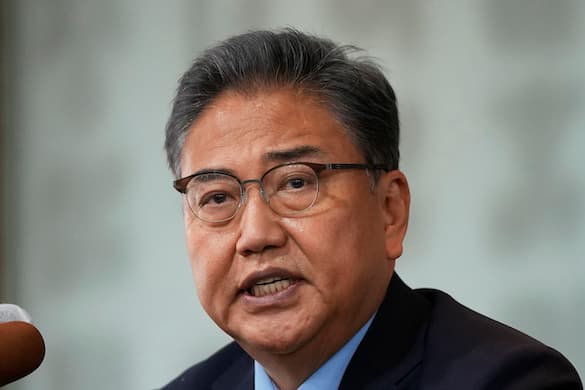Wheel of History Takes a Surprising Turn With South Korea and Vietnam
Following the money, the capitalist democracy strikes a ‘strategic partnership’ with the communists it fought in Vietnam.

The Communist parties of Vietnam and North Korea, both led by dictators, appear to be at odds on one critical issue — dealing with South Korea.
Vietnam has agreed to enter into a “strategic partnership” with the Republic of Korea, the capitalist democracy south of the demilitarized zone that marks the truce with the communist North.
South Korea’s foreign minister, Park Jin, having warmed up South Korea’s relations with Washington and Tokyo, has just negotiated a “comprehensive strategic partnership” with Vietnam. He and Vietnam’s foreign minister, Bui Thanh Son, agreed on the plan during talks at Hanoi in which they celebrated 30 years of diplomatic relations.
According to South Korea’s Yonhap News, they decided to formalize the upgrade at a future summit between their two leaders, Yoon Suk-yeol and Nguyen Xuan Phuc. Why, though, a “strategic partnership” — a term that connotes a relationship only one step beneath that of a formal alliance?
Follow the money. “South Korea remains one of the largest investors in Vietnam with over 9,000 companies and accumulated investment capital of $70 billion, accounting for 18.5% of total foreign direct investment and representing an 80-fold increase since 1992,” according to the English-language Hanoi Times.
“Economic cooperation has been a highlight of Vietnam-South Korea relations,” the paper says, citing a book by a professor at Sogang University in Seoul, Lee Han-woo. Trade between the two countries, it says, is targeted at $100 billion for next year.
By using the word “strategic,” though, Mr. Park left no doubt he’s also looking for Vietnam to exercise influence over Pyongyang in restraining the North Korean dictator’s impulses for military confrontation against the South. Thus Yonhap reports he “asked for Vietnam’s support and cooperation in achieving peace and stability of the Korean Peninsula.”
What about China, which provided the Communist regime in Hanoi with the arms needed to win the war in Vietnam years after Chinese forces rescued the North Koreans from defeat in the Korean War? Vietnam has clashed with China over rights for fishing and drilling for oil and natural gas in the South China Sea, which China claims as its own territory.
South Korea, which has its own issues with China, isn’t about to join forces with Vietnam against China, but might offer a little sympathy, or moral support, while pumping in ever more funds into the country where 5,000 South Korean troops died fighting the Communists in the Vietnam War. It’s a surprising turn in the wheel of history.

